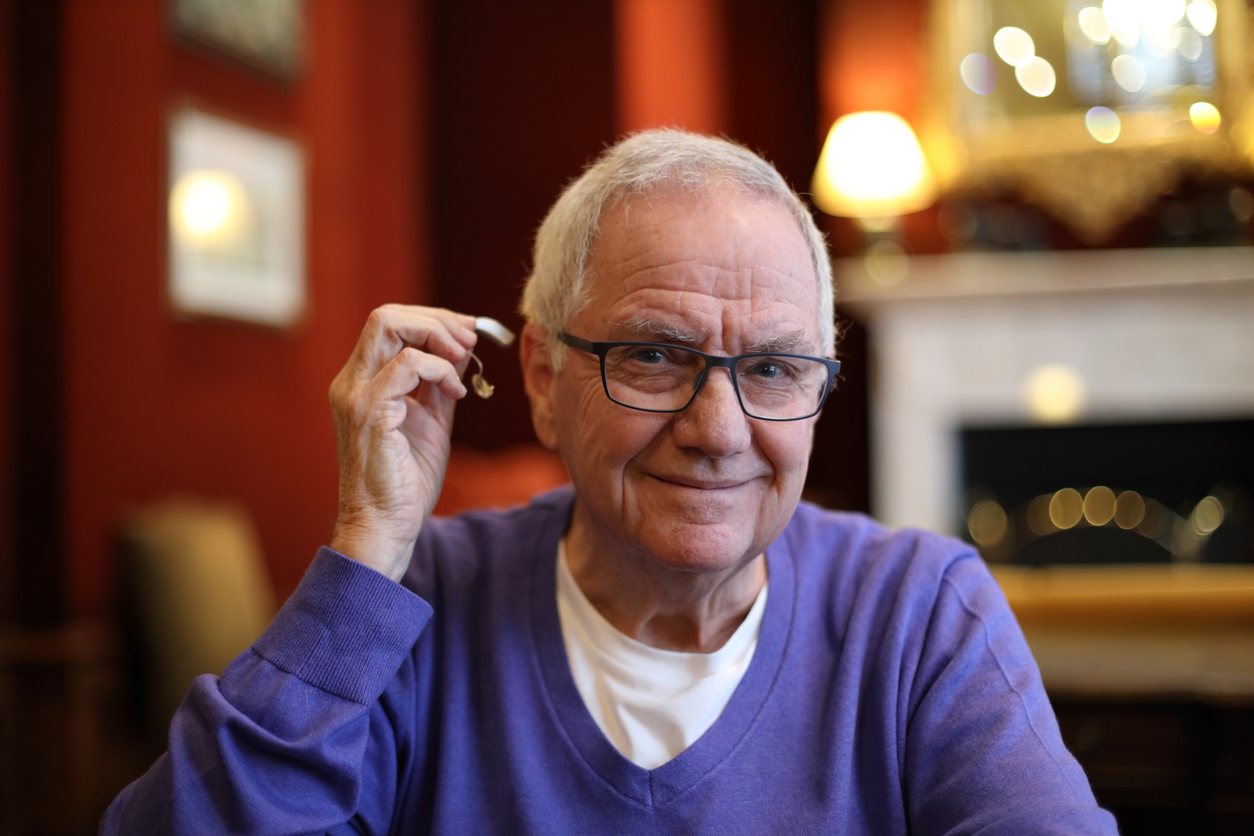Beginning your hearing journey with hearing aids is an exciting time, and hearing aids will bring innumerable benefits to your life. We hope you feel excited and optimistic about what comes next.

What to Expect
It’s important to keep in mind that hearing aids are going to bring a deluge of new sound information into the brain, which can lead to overstimulation and fatigue until your brain adapts to the new level of work. Your brain will adjust, but it may take some time to do so. Here are some things to keep in mind during that adaptation period to help you move through it smoothly and quickly.
Background Noise is Going to Seem Loud
Your brain is out of practice with processing and sorting out background noise. Until it relearns how to prioritize which sounds to perceive, it will treat all kinds of sounds with equal importance. Sounds like the heater humming, birds singing or your own footsteps will seem uncommonly loud until your brain adjusts and learns to sort out background noise.
Your Own Voice Will Sound Weird
Similar to background noise, your brain needs to remember what your voice sounds like and relearn that it doesn’t need to perceive your own voice sharply. People new to hearing aids often cite the sound of their own voice as one of the biggest surprises.
“Tinny” Sounds
Your brain is also out of practice with perceiving high-pitched sounds; these are usually the first pitches you lose with hearing loss. Hearing them again will sound unnatural at first, and you may feel especially aware of the digital sound of high-pitched sounds since they’re fed through a microphone and speaker. People often call this effect “tinny,” but these sounds will go back to normal as your brain relearns high-pitched sounds.
You’re Going to Be Tired
Mental energy is not an unlimited resource. Your brain will use more energy to process and hear an increased amount of sound information, leaving less energy for other tasks. At the end of the day or after a long period of listening—like a conversation or movie—you may notice that you feel abnormally tired. This is known as listening fatigue, and it’s a common complaint among new hearing aid users.
How to Make the Adjustment Period Smoother
Once you get through the adjustment period, hearing and your hearing aids will feel much more natural. Here are some things you can do to ease the adjustment period or make it go faster:
- The longer you wear your hearing aids, the faster your brain will adjust. Challenge yourself to wear them for longer every day.
- Wear them at home at first. Get back into the habit of hearing in the comfort of your own home, with sounds that you’re familiar with and can anticipate.
- Talk to yourself. Narrate your daily routine to yourself, talk to your pet or read out loud. Get re-used to the sound of your own voice.
- Expect listening fatigue. Don’t be taken by surprise by some of the adverse effects of the adjustment period. Acknowledge that listening fatigue is a phenomenon, look for signs that you’re experiencing it and give yourself grace. This is a big change.
Our team is here to guide you through the adjustment process. Discuss any struggles you’re experiencing during the first week with your audiologist at your follow-up appointment.